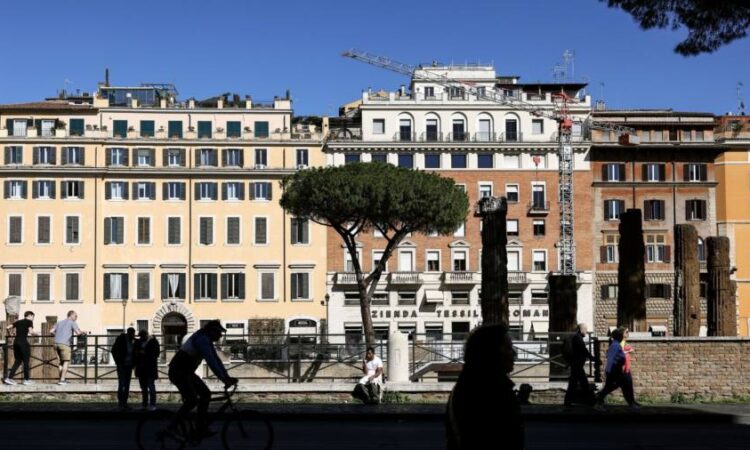
Hedge funds have been rushing to unwind bets against Italian government bonds in recent weeks, cutting their losses as the highly indebted country confounds expectations to deliver strong returns following a period of political calm.
The total value of Italy’s bonds borrowed by investors to wager on a fall in prices has dropped by 40 per cent over the past month, according to data from S&P Global Market Intelligence.
The move marks a retreat from last year, when short positions shot up to their highest level since the global financial crisis, peaking at €46bn last November amid concerns over the country’s dependence on gas imports and the election of rightwing prime minister Giorgia Meloni.
But a warmer than expected winter and a lack of confrontation with Brussels has helped drive an ICE Bank of America index of Italian government debt up 3.4 per cent so far in 2023 in total returns. A sharp drop in natural gas prices has delivered an extra boost to the Italian economy, which is expected to grow 1.2 per cent this year, outpacing the ECB’s 1 per cent growth forecast for the wider eurozone.

“I can certainly see shorts throwing in the towel,” said Richard McGuire, head of rates strategy at Rabobank, adding: “I suspect this is a combination of the fact the trade has gone nowhere, and the emergence of banking sector tensions which is a challenge for those who had been expecting ECB activism to pull the rug from under BTPs”.
A senior European official said the main reason why investors were reducing their short positions was down to the way the new government under Meloni has been “a lot more calm and constructive in fiscal policy and in its relations with the EU” than many investors had expected.
The rally has meant that the gap or “spread” between Italy and Germany’s 10-year debt — a key gauge of risk — has remained much narrower than the it was throughout most of last year. It has traded in the range of 1.2 to 2 percentage points this year, down from a peak of over 2.5 percentage points last autumn.
Beyond a brighter economic outlook, the resilient performance of Italian government bonds in recent months has also been underpinned by a surge in purchases by domestic retail investors and non-financial companies, which has more than offset a retreat by foreign investors.
In the six months since August 2022, Italian households and non-financial companies bought an extra €50bn of domestic government securities, increasing their holdings by just over 30 per cent to €213bn, according to data released by the Bank of Italy this month.






